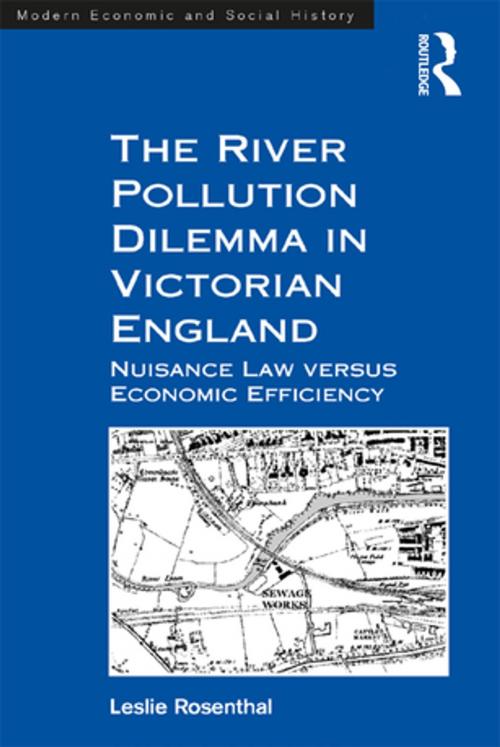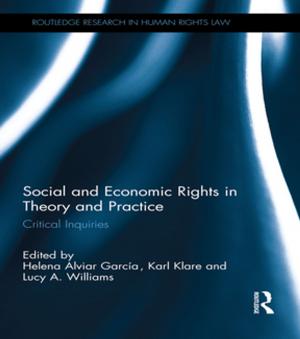The River Pollution Dilemma in Victorian England
Nuisance Law versus Economic Efficiency
Nonfiction, Reference & Language, Law, Legal History, History, Modern, 19th Century| Author: | Leslie Rosenthal | ISBN: | 9781317017318 |
| Publisher: | Taylor and Francis | Publication: | February 17, 2016 |
| Imprint: | Routledge | Language: | English |
| Author: | Leslie Rosenthal |
| ISBN: | 9781317017318 |
| Publisher: | Taylor and Francis |
| Publication: | February 17, 2016 |
| Imprint: | Routledge |
| Language: | English |
Nineteenth-century Britain witnessed a dramatic increase in its town population, as a hitherto largely rural economy transformed itself into an urban one. Though the political and social issues arising from these events are well-known, little is known about how the British legal process coped with the everyday strains that emerged from the unprecedented scale of these changes. This book explores the river pollution dilemma faced by the British courts during the second half of the nineteenth century when the legal process had to confront the new incompatible realities arising from the increasing amounts of untreatable waste flowing into the rivers. This dilemma struck at the heart of both Victorian urban and rural society, as the necessary sanitary reformation of the swelling cities and expanding industry increasingly poisoned the rivers, threatening the countryside and agricultural rents and livelihoods. Focusing on ten legal disputes, the book investigates the dilemma that faced the courts; namely how to protect the traditional and valued rights of landholders whose rivers and lands were being polluted by industrial waste and untreated sewage, whilst not hindering the progress of sanitary reform and economic progress in the towns. The case studies considered involve major industrialising centres, such as Birmingham, Leeds, Northampton, Wolverhampton and Barnsley, but also include smaller towns such as Tunbridge Wells, Leamington Spa and Harrogate. The fundamental issues raised remain as important today as they did in Victorian times. The need for the courts to balance a variety of conflicting needs and rights within the limits of contemporary technological capabilities often played out in surprising ways, with outcomes not always in line with theoretical expectations. As such the historical context of the disputes provide fascinating insights into nineteenth-century legal process, and the environmental and social attitudes of the times.
Nineteenth-century Britain witnessed a dramatic increase in its town population, as a hitherto largely rural economy transformed itself into an urban one. Though the political and social issues arising from these events are well-known, little is known about how the British legal process coped with the everyday strains that emerged from the unprecedented scale of these changes. This book explores the river pollution dilemma faced by the British courts during the second half of the nineteenth century when the legal process had to confront the new incompatible realities arising from the increasing amounts of untreatable waste flowing into the rivers. This dilemma struck at the heart of both Victorian urban and rural society, as the necessary sanitary reformation of the swelling cities and expanding industry increasingly poisoned the rivers, threatening the countryside and agricultural rents and livelihoods. Focusing on ten legal disputes, the book investigates the dilemma that faced the courts; namely how to protect the traditional and valued rights of landholders whose rivers and lands were being polluted by industrial waste and untreated sewage, whilst not hindering the progress of sanitary reform and economic progress in the towns. The case studies considered involve major industrialising centres, such as Birmingham, Leeds, Northampton, Wolverhampton and Barnsley, but also include smaller towns such as Tunbridge Wells, Leamington Spa and Harrogate. The fundamental issues raised remain as important today as they did in Victorian times. The need for the courts to balance a variety of conflicting needs and rights within the limits of contemporary technological capabilities often played out in surprising ways, with outcomes not always in line with theoretical expectations. As such the historical context of the disputes provide fascinating insights into nineteenth-century legal process, and the environmental and social attitudes of the times.















